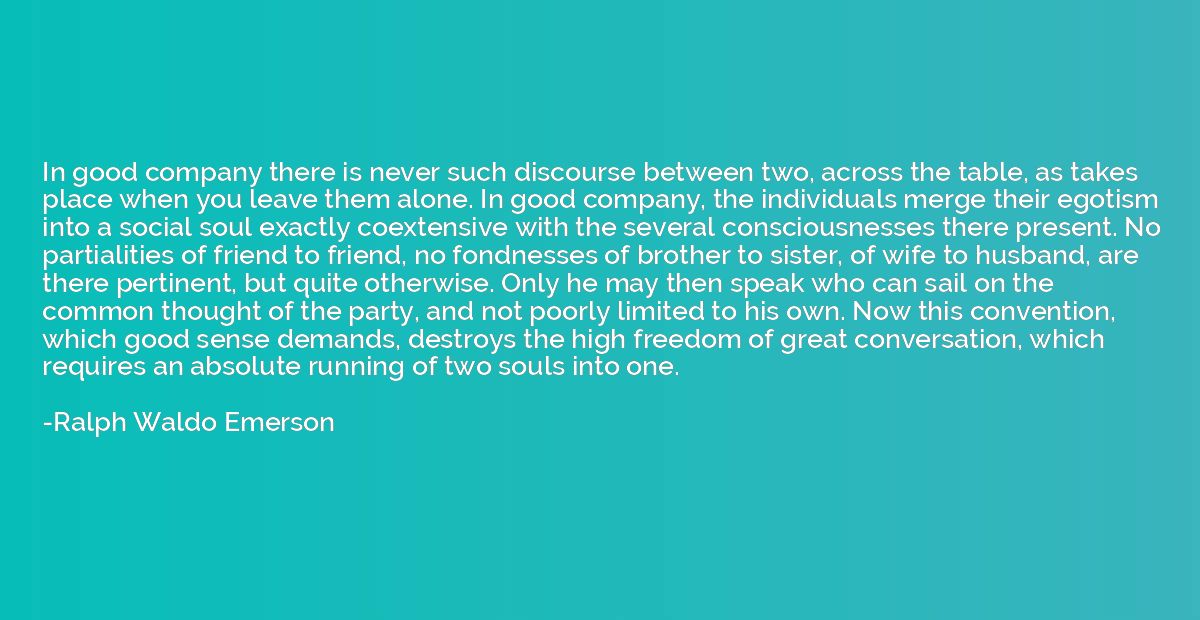Quote by Ralph Waldo Emerson
In good company there is never such discourse between two, across the table, as takes place when you leave them alone. In good company, the individuals merge their egotism into a social soul exactly coextensive with the several consciousnesses there present. No partialities of friend to friend, no fondnesses of brother to sister, of wife to husband, are there pertinent, but quite otherwise. Only he may then speak who can sail on the common thought of the party, and not poorly limited to his own. Now this convention, which good sense demands, destroys the high freedom of great conversation, which requires an absolute running of two souls into one.

Summary
This quote by Ralph Waldo Emerson speaks to the nature of conversation in good company. Emerson suggests that when individuals are alone with each other, deeper and more meaningful discussions occur than when they are in a larger group setting. In good company, individuals set aside their own egotism and merge their consciousness with others, creating a collective social soul. This sense of unity fosters open and unbiased conversation free from personal attachments or limitations. However, Emerson argues that this social convention, while practical and sensible, inhibits the true freedom and richness of great conversation, which requires a complete merging of two souls into one.














